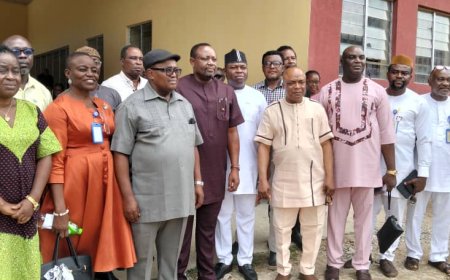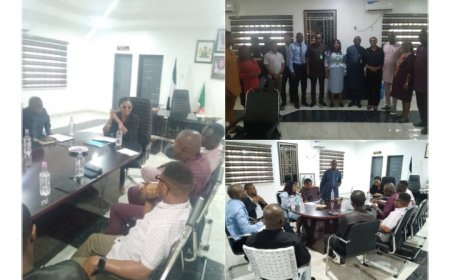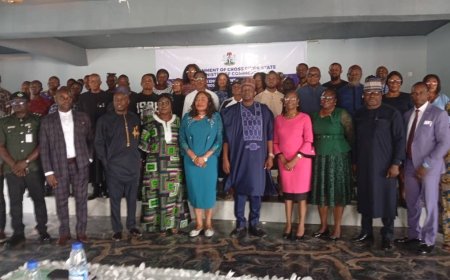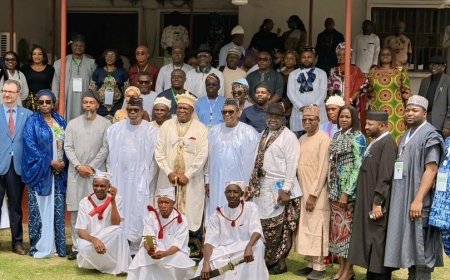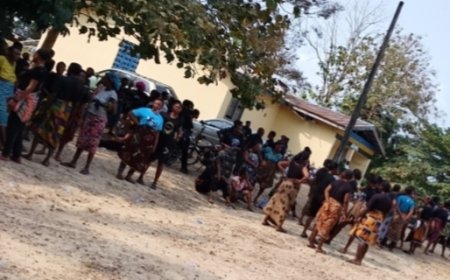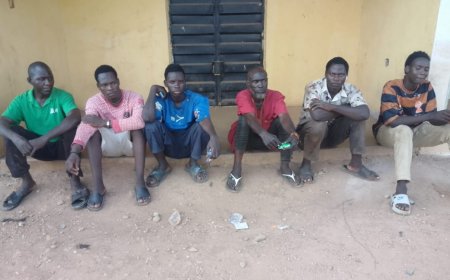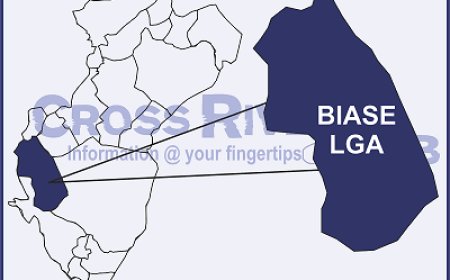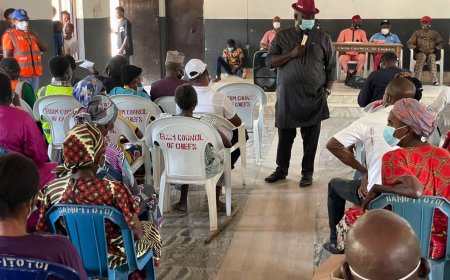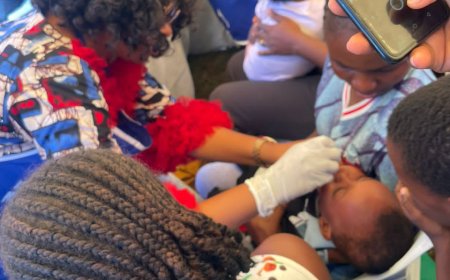Cross River Partners FMOH, Others to Reduce Maternal, Neonatal Deaths through MAMII Initiative
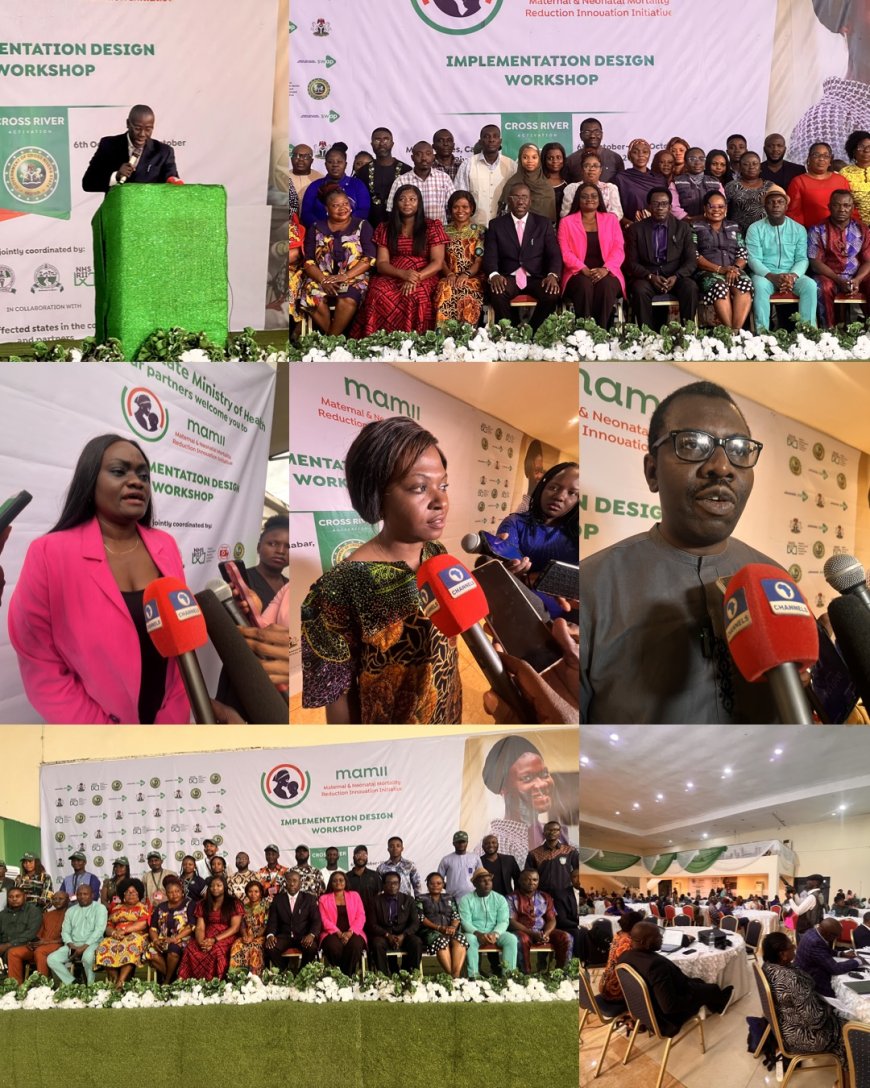
By Ebi COLLINS
The Cross River State Government has reaffirmed its commitment to improving maternal and child health outcomes as it partners with the Federal Government and development partners to implement the Maternal and Neonatal Mortality Reduction Innovation Initiative (MAMII), a strategic intervention designed to reduce preventable deaths among women and newborns.
The commitment was made at the ongoing five-day technical workshop on MAMII in Calabar, which began on Monday and will continue through Friday.
Speaking on behalf of the State Commissioner for Health, Dr. Henry Egbe Ayuk, the Permanent Secretary, Dr. Jonah Offor, described the workshop as a significant step toward addressing the root causes of maternal and neonatal mortality in the state.
He noted that the Cross River State Government remains resolute in its pursuit of improved health outcomes through data-driven strategies and inclusive stakeholder engagement.
“This initiative aligns perfectly with Governor Bassey Otu’s People-First agenda. It provides an opportunity to strengthen our health system and deepen our collaboration with federal and development partners toward a sustainable reduction in maternal and neonatal deaths,” Dr. Offor said.
The Permanent Secretary appreciated the Federal Ministry of Health, the World Health Organization (WHO), the National Primary Health Care Development Agency (NPHCDA), and other partners for their continued support to the state’s health sector.
In her remarks, the Director General of the Cross River State Primary Health Care Development Agency (CRSPHCDA), Dr. Vivien Mesembe Otu, described the initiative as a major leap toward achieving safer pregnancies and deliveries in the state.
She explained that the MAMII project would enable stakeholders to design and implement evidence-based interventions that directly address state-specific challenges.
“We are committed to ensuring that Cross River plays a leading role in the MAMII implementation process. Through collaborative planning and local adaptation, we can save more lives and promote safer deliveries across the state,” she said.
Also speaking, the State Managing Team Lead for MAMII, Dr. Iniofion Inyang, who represented the national team, said the initiative targets a 30% reduction in maternal and neonatal deaths and a 60% increase in healthcare service utilization in pilot areas by 2028.
She explained that Cross River’s pilot local government area, Abi, was selected based on data indicating its high contribution to maternal and neonatal mortality.
“During this five-day workshop, participants will be oriented on the MAMII framework, conduct fieldwork in Abi LGA to identify underlying challenges, and co-create interventions tailored to the state’s realities,” Dr. Inyang said.
She added that a MAMII Task Force would be inaugurated at the end of the workshop to drive implementation across all intervention pillars.
On his part, the MAMII Project Consultant in Cross River State, Dr. Ogbona Nwankwo, said the workshop was designed to expose participants and critical stakeholders to the objectives, pillars, and strategies of the initiative while securing their buy-in.
“The MAMII project is a targeted approach toward addressing maternal and neonatal mortality across 172 local government areas in Nigeria that contribute over 50% of total maternal deaths nationwide,” Dr. Nwankwo explained.
He added that in Cross River, the project would focus on strengthening health systems and community-level responses within Abi LGA.
In his remarks, Dr. Dachung Alexander, representing the Federal Ministry of Health and Social Welfare, emphasized the federal government’s resolve to sustain intergovernmental collaboration in addressing maternal health challenges.
“The MAMII initiative is a product of extensive research and partnership. We are glad to be working closely with the Cross River team to ensure that the design and implementation of this programme reflect local realities and deliver measurable results,” he said.
Speaking on behalf of the Head of the National Health Insurance Authority (NHIA) in Cross River State, Dr. Michael Itam commended the initiative, describing it as laudable and timely, given the persistently high rates of maternal and neonatal mortality in the country.
He explained that the NHIA remains at the forefront of efforts to reduce preventable deaths among pregnant women and newborns through targeted programmes designed to expand access to quality and affordable healthcare.
“We have a programme known as SEMONC — the Comprehensive Emergency Maternal and Neonatal Care — which designates selected hospitals across the state as centres of excellence for maternal emergencies,” Dr. Itam said.
He added that the Authority also implements the Free First Aid Project (FFP), which provides free treatment and support for women experiencing complications such as obstructed labour.
“Beneficiaries of this programme receive full medical care without paying a kobo. Their transport and feeding are covered, and they are subsequently enrolled into the NHIA scheme for continued monitoring and recovery,” he noted.
Dr. Itam reaffirmed that the NHIA has put robust modalities in place to ensure compulsory health insurance coverage for every Nigerian citizen and legal resident, stressing that such interventions are critical to achieving accessible, qualitative, and affordable healthcare for all.
Also speaking, Dr. Muhammed Muhammed of the National Primary Health Care Development Agency (NPHCDA) expressed satisfaction with the state’s commitment to the project and pledged federal support for its full implementation.
“We are ready to work closely with the Cross River team to ensure the successful execution of this initiative. The Federal Government is determined to align this design with local needs and realities,” he assured.
Delivering remarks on behalf of the World Health Organization (WHO) Cross River, Dr. Gloria Archibong commended the federal and state governments for convening the technical workshop, describing it as timely and strategic.
“Nigeria still records one of the highest maternal and neonatal mortality rates globally, largely due to limited access to quality health facilities after childbirth. This workshop provides a roadmap for change,” she said.
Dr. Archibong reaffirmed WHO’s continued collaboration and technical support toward achieving the Sustainable Development Goal (SDG) 3.1 target of reducing global maternal mortality to fewer than 70 deaths per 100,000 live births by 2030.



